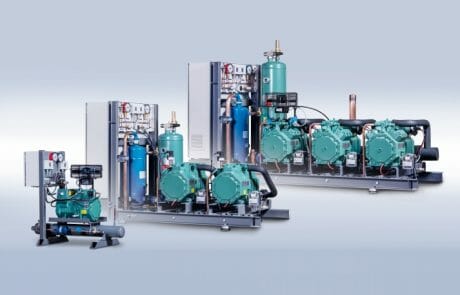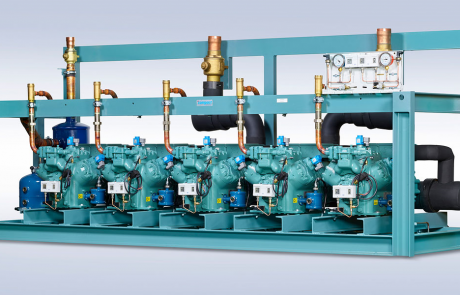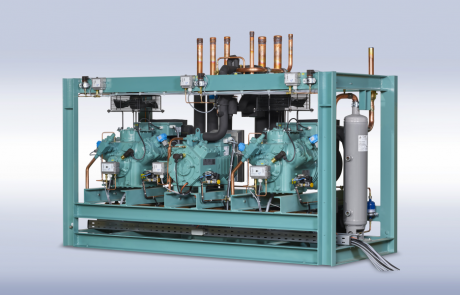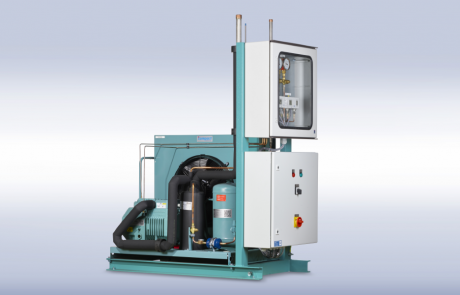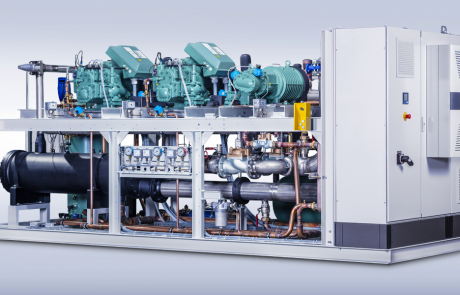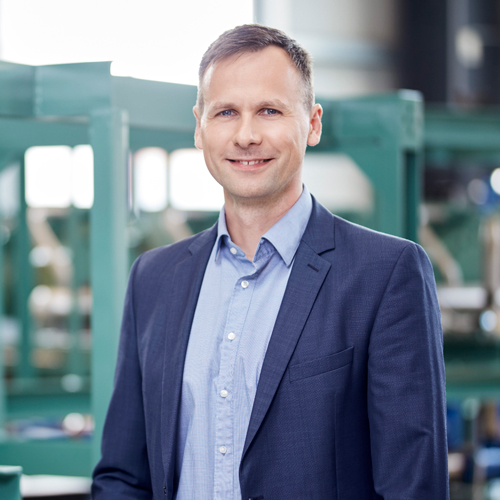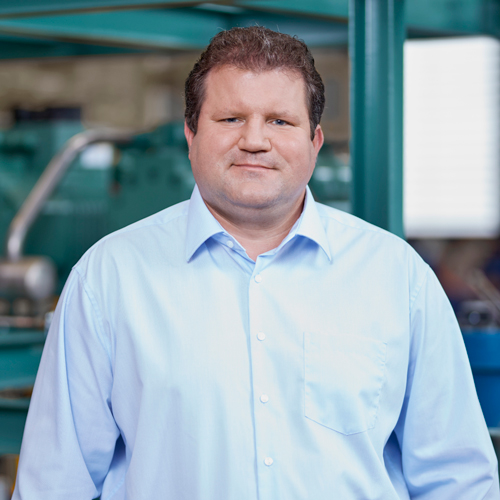Synthetic Refrigerants
Discover our comprehensive FKW/HFKW refrigeration solutions, which continue to offer a wide range of applications despite the restrictions imposed by the F-Gas Regulation. While conventional synthetic refrigerants have often been used in the past, the demand and need for consulting regarding natural solutions is increasing. In view of current laws and tightening regulations, long-term use should always be considered. If you have any questions, we will of course be happy to help.
These machines work with refrigerant compounds that are currently based on HFO (hydrofluoroolefins) or HFCs (hydrofluorocarbons). There are a number of refrigerants with a low global warming potential (GWP value), which are classified in flammability class A2L, due to their chemical composition. These require special safety regulations and may have restricted use.
Products
Products
References
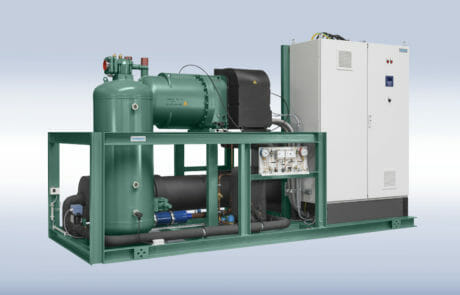
400 kW chiller for air-conditioning
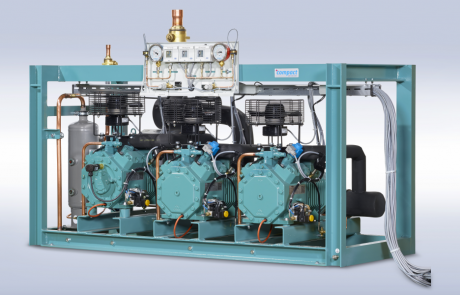
TK Composite for butcher warehouses
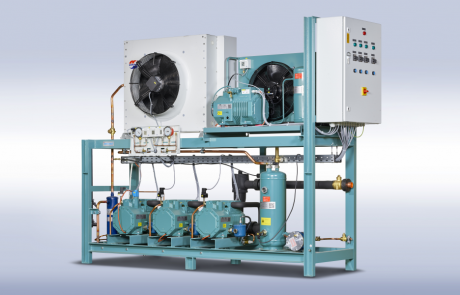
Condensing unit for automation technology
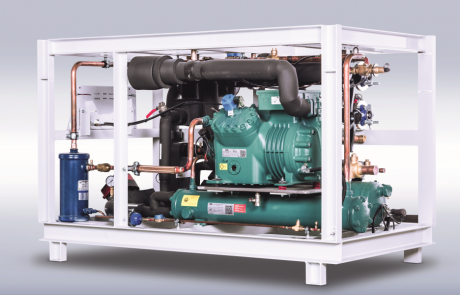
Single compressor TK for test bench
TK Combination with NK compressor set
References

400 kW chiller for air-conditioning

TK Composite for butcher warehouses

Condensing unit for automation technology

Single compressor TK for test bench
TK Combination with NK compressor set
FAQ
Our FAQ area offers you a quick and convenient way to obtain information. If your question is not listed, please do not hesitate to contact us. We will be happy to help you.
The Regulation on Fluorinated Greenhouse Gases, also known as the F-Gas Regulation, is an EU directive from 2006. The new Regulation (EU) 2024/573 has since been adopted and came into force on 11 March 2024.
The aim of the regulation is to protect the environment by reducing emissions of fluorinated greenhouse gases. The regulation governs the use and handling of the refrigerants in question.
Fluorinated gases, also known as F-gases, have a high global warming potential which is often far higher than that of carbon dioxide (CO2). They are used in a number of industrial sectors, including as refrigerants in refrigeration and air conditioning technology.
The quantities of hydrofluorocarbons (HFCs) placed on the EU market will continue to be gradually reduced. From 2050 onwards, the permitted quantity will be set to zero.
The implementation of this regulation makes an important contribution toward achieving EU targets for reducing greenhouse gas emissions and promoting a more sustainable and environmentally friendly economy.
Further information can be found at the Federal Environment Agency.
The higher the GWP value, the more the substance contributes to the greenhouse effect on global warming.
The GWP value is used in the F-Gas Regulation and specifies the limit values for restrictions and bans on refrigerants.
compact Kältetechnik strictly adheres to the applicable standards and laws, especially when using synthetic refrigerants. The company is aware of the impact on the environment and attaches great importance to the responsible use of refrigerants. This includes compliance with the EU F-Gas Regulation, which restricts the use of certain synthetic refrigerants with a high global warming potential.
In addition to its legal obligations, compact Kältetechnik is committed to sustainable practices throughout its business operations, including the promotion of energy-efficient solutions and the use of environmentally friendly alternatives wherever possible.
We are happy to provide support regarding the possibilities and promotion of technical conversion to natural refrigerants. Our partner Ecogreen is an expert in subsidies and can provide you with comprehensive advice on subsidies for refrigeration systems.
Contact
Discover a sustainable future with compact refrigeration technology! Our team will be happy to support you with efficient and environmentally friendly refrigeration solutions – contact us today.
